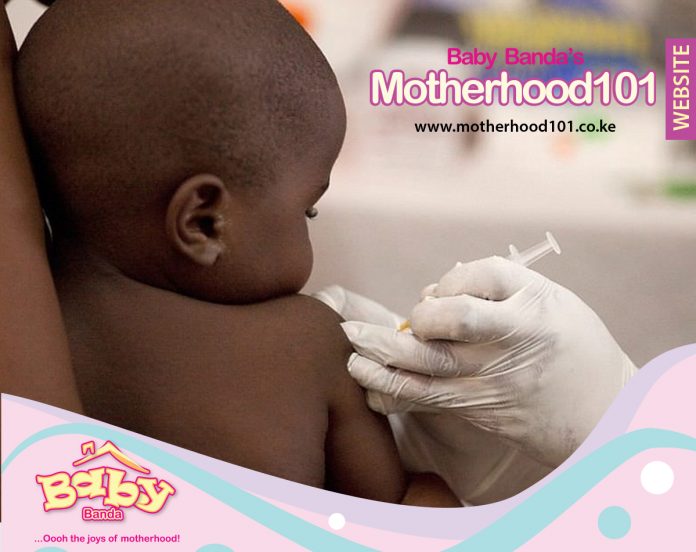Getting your baby immunised is the best way to protect them from getting diseases that are usually caused by germs and related organisms. In Kenya, the Ministry of Health has outlined specific vaccines that babies have to be given from birth until they are nine months old at different time intervals. These vaccines are normally supplied to both government and private hospitals to ensure that every newborn gets their shots in good time.
The debate on whether to use regular vaccinations or those that are labelled baby-friendly has left many mothers confused on the best ones for baby. Regular vaccines which are given under the Kenya Expanded Programme on Immunization (KEPI) only include the basic vaccines that every baby must be given until they are nine months old. However, the baby-friendly ones can go beyond the government slated time period and can include extra vaccines depending on the preference of parents and their doctor. Nevertheless, here are the main differences between the government-issued vaccinations and the baby-friendly ones.
- Cost
Majority of the government-issued regular vaccines are offered through county-run hospitals in Kenya and are usually offered free of charge. Mothers are expected to go to the hospital on scheduled days to have their babies immunised. On the other hand, the baby-friendly jabs are often given at varied fees depending on the hospital in which they are administered. Most times, the cost can be double or even thrice the amount of the regular immunisations distributed under KEPI. Therefore, it is important to ask for the cost of the vaccines before giving a go-ahead to have them given to your baby.
- Side Effects
In most cases, regular vaccinations are accompanied by side effects such as fever and swelling of the area in which the needle pierced the skin. Most mums in Kenya help to alleviate the discomfort by giving pain relief medication. Alternatively, those that are labelled baby-friendly, leave the baby unaffected with many of them going on with their daily routine without any interruptions.
- Number of vaccinations
Regular vaccines in Kenya are often available until the baby is nine months and any extra vaccines have to be paid for at private hospitals. The vaccines are ten in number and are distributed across the months till they reach the nine-month mark. However, those outside the KEPI schedule and often part of the baby-friendly jabs include five more vaccines that are given until the baby is two years old.
- Storage
Most government-run hospitals in Kenya give regular vaccines on scheduled dates with new mums advised to come with their babies on the days recorded in their clinic books. On those days, vaccines are administered to every newborn any leftovers disposed of to avoid any contamination during storage. In contrast, the baby-friendly ones are administered at different times and are usually stored over time for preservation.
Overall, it is good to note that private hospitals in Kenya offer both regular and baby-friendly vaccinations to parents giving them a chance to make the best decision for their baby.













